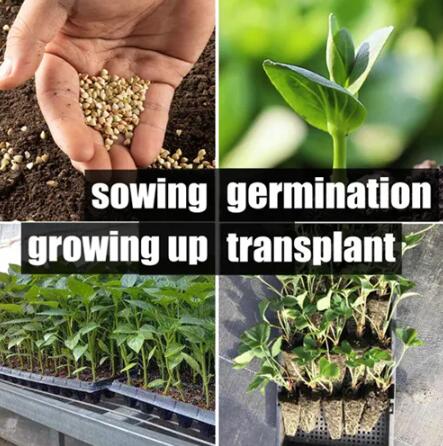How to Use Flood and Drain Trays
Flood and drain trays, also known as ebb and flow trays or flood tables, are commonly used in hydroponic and aquaponic systems for growing plants. These trays provide a controlled environment for plants to receive water and nutrients. Here's how to use flood and drain trays effectively:
Materials Needed:
Flood and drain tray with a drain fitting or valve.
Growing medium (such as hydroponic grow rocks, perlite, or coco coir).
Plant containers or pots.
Water pump.
Reservoir tank.
Timer or controller.
Nutrient solution.
pH and EC (electrical conductivity) meters.
Steps:
Select a Location:
Choose a suitable location for your flood and drain system. It should have proper access to light, electrical outlets, and drainage. Make sure the surface is level.
Set Up the Tray:
Place the flood and drain tray in your chosen location.
Ensure the drain fitting or valve is properly attached and functioning.
Add Growing Medium:
Fill the plant containers or pots with your chosen growing medium. This medium should provide good support for the plants and allow for good drainage.

Position Plants:
Place your plants or seedlings into the containers with the growing medium. Ensure they are evenly spaced and at the appropriate depth.
Reservoir and Pump:
Set up a reservoir tank at a lower level than the flood and drain tray.
Install a water pump in the reservoir. The pump will be used to flood the tray periodically.
Plumbing Connections:
Connect tubing from the water pump to the flood and drain tray's fill fitting.
Timer or Controller:
Use a timer or controller to automate the flooding and draining cycles. This allows you to control how often and for how long the tray is flooded.
Set the timer to flood the tray for a specific duration and at regular intervals. The frequency and duration depend on the type of plants you are growing and the specific requirements of your system.
Nutrient Solution:
Prepare a nutrient solution according to the needs of your plants and the recommendations on your nutrient product.
Pour the nutrient solution into the reservoir tank.
Testing and Monitoring:
Regularly monitor the pH and EC of the nutrient solution to ensure it stays within the desired range for your plants.
Check for proper drainage and that the tray drains completely after each flooding cycle.
Maintenance:
Keep an eye on your plants for signs of overwatering or underwatering.
Clean the flood and drain tray, pump, and reservoir periodically to prevent clogs or contamination.
Harvest and Enjoy:
As your plants grow, monitor their progress, and when they are ready, harvest and enjoy your hydroponically or aquaponically grown produce.
Flood and drain trays are an efficient way to provide water and nutrients to your plants while ensuring they receive proper aeration and oxygenation. By maintaining the system and adjusting the flooding cycles as needed, you can optimize plant growth and yield.


